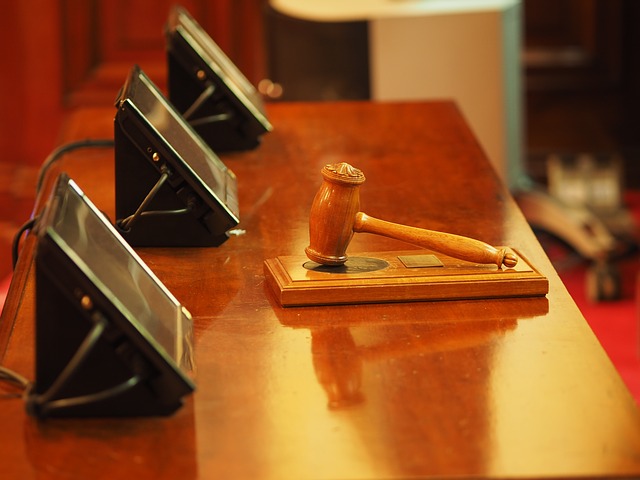The Pros and Cons of a Judicial Clerkship
The Pros and Cons of a Judicial Clerkship
You may be wondering what exactly a judicial clerkship is and whether it would be a good position for you. In this post, we explain what a judicial clerkship is and the pros and cons of taking such a position!
The Pros and Cons of a Judicial Clerkship
What is a clerkship?
Most judges have at least one attorney on their staff who helps the judge conduct legal research, prepare for hearings and trials and draft written opinions. A law clerk is often a recent graduate. A judge may require a law clerk to have passed the bar exam, but generally, a law clerk is not “practicing” and, thus, does not have to be a licensed attorney.
There are two types of clerkships: term clerks and career clerks. Term clerks often serve in the position for 1 to 3 years. The length of the term is generally determined in advance and sometimes there is an opportunity to extend the term for one or more additional years. Career clerks often continue working for the judge for an undisclosed period of time. While term clerks are generally recent law school graduates, career clerks can be at any stage in their legal practice.
Where can I find a clerkship?
The most talked-about (and most prestigious) clerkship is that for a federal judge. All levels of federal judges have law clerks: District Court judges (and sometimes even magistrates), Circuit Court judges, and Supreme Court justices. The application process for federal clerkships is handled through a website called “OSCAR”. It is an extremely competitive process and it can be very difficult to even land an interview with a federal judge. The process is extremely formal, with specific start and end dates for the application process that are uniform for all judges. Judges often hire law clerks one to two years in advance of the date on which the clerk will actually start working for the judge.
State court judges and justices also hire law clerks. State supreme court justices and appellate court judges often have at least one law clerk. Some state appellate courts may even have staff attorneys whose job is to assist all of the judges, not just one particular judge. State trial court judges sometimes also have law clerks.
Whether state court justices and judges have law clerks and the process of obtaining such clerkships will vary greatly from state to state. Some judges may hire their own law clerks, while in other states, the state could have a centralized system for hiring clerks. The process of obtaining a state court clerkship is less formal (and often slightly less competitive) than the process for obtaining a federal clerkship.
What are the benefits of clerking?
Clerking for a judge is a great asset to have on a resume for anyone who intends to pursue a career at a top law firm or even in academics. It is often highly regarded. Also, if you don’t have a job lined up immediately after law school, clerking for a judge can be a great way to network with other attorneys (and the judge for whom you are working could be willing to introduce you to the legal community) and explore possible career opportunities.
Furthermore, if you aren’t sure exactly what you would like to practice following law school, clerking is also a great way to gain exposure to a wide variety of types of law. Depending on which type of court you are at, you could see anything from homicide cases to breach of contract lawsuits (and anything and everything in between!). Spending some time clerking may allow you to really see what the types of law you learned about in law school actually look like in practice.
Also, once you are at a firm and are under the pressure of billable hours, you very likely will not have any chance to just sit and court and observe. Clerking provides a great opportunity to observe other lawyers in the courtroom setting and gain a lot of exposure to what does (and does not) work well from the perspective of the judge. You will be gaining a lot of insight into the dos and don’ts of lawyering as a law clerk!
What are the cons of clerking?
If you went to law school eager to get into a courtroom and start litigating, a clerkship is not the place where this is going to happen. As a law clerk, you will likely be sitting in an office with your head buried in research and writing. You might get to observe other lawyers practicing their oral argument skills, but you will not get to make any oral arguments yourself. Nor will you have the opportunity to sign your own name to anything that you prepare. All of the research and writing involved in a clerkship is for the judge’s review and/or signature. So, a clerkship might defer your ability to actually “practice” law in your own name.
The salary for clerkships can also deter people from clerking. Clerkships often attract the top students from law school; these are the same students who are generally in a position to accept jobs at the top law firms that pay really well. Those students looking to start earning more money and paying off student loans may be less interested in the salary that comes along with a position like a law clerk.
Looking to Pass the Bar Exam?
Free Resources:
- 🌟Bar Exam Free Resource Center: Access our most popular free guides, webinars, and resources to set you on the path to success.
- Free Bar Exam Guides: Expert advice on the MBE, the MEE, passing strategies, and overcoming failure.
- Free Webinars: Get insight from top bar exam experts to ace your preparation.
Paid Resources:
- 🏆One-Sheets: Our most popular product! Master the Bar Exam with these five-star rated essentials.
- Bar Exam Outlines: Our comprehensive and condensed bar exam outlines present key information in an organized, easy-to-digest layout.
- Exclusive Mastery Classes: Dive deep into highly tested areas of the MBE, MEE, MPT, and CA bar exams in these live, one-time events.
- Specialized Private Tutoring: With years of experience under our belt, our experts provide personalized guidance to ensure you excel.
- Bar Exam Courses: On Demand and Premium options tailored to your needs.
- Bar Exam Crash Course + Mini Outlines: A great review of the topics you need to know!
🔥 NEW! Check out our Repeat Taker Bar Exam Course and our new premier Guarantee Pass Program!







Leave a Reply
Want to join the discussion?Feel free to contribute!